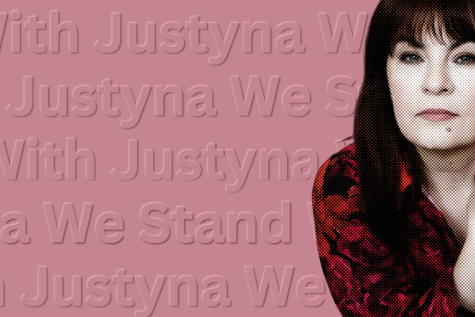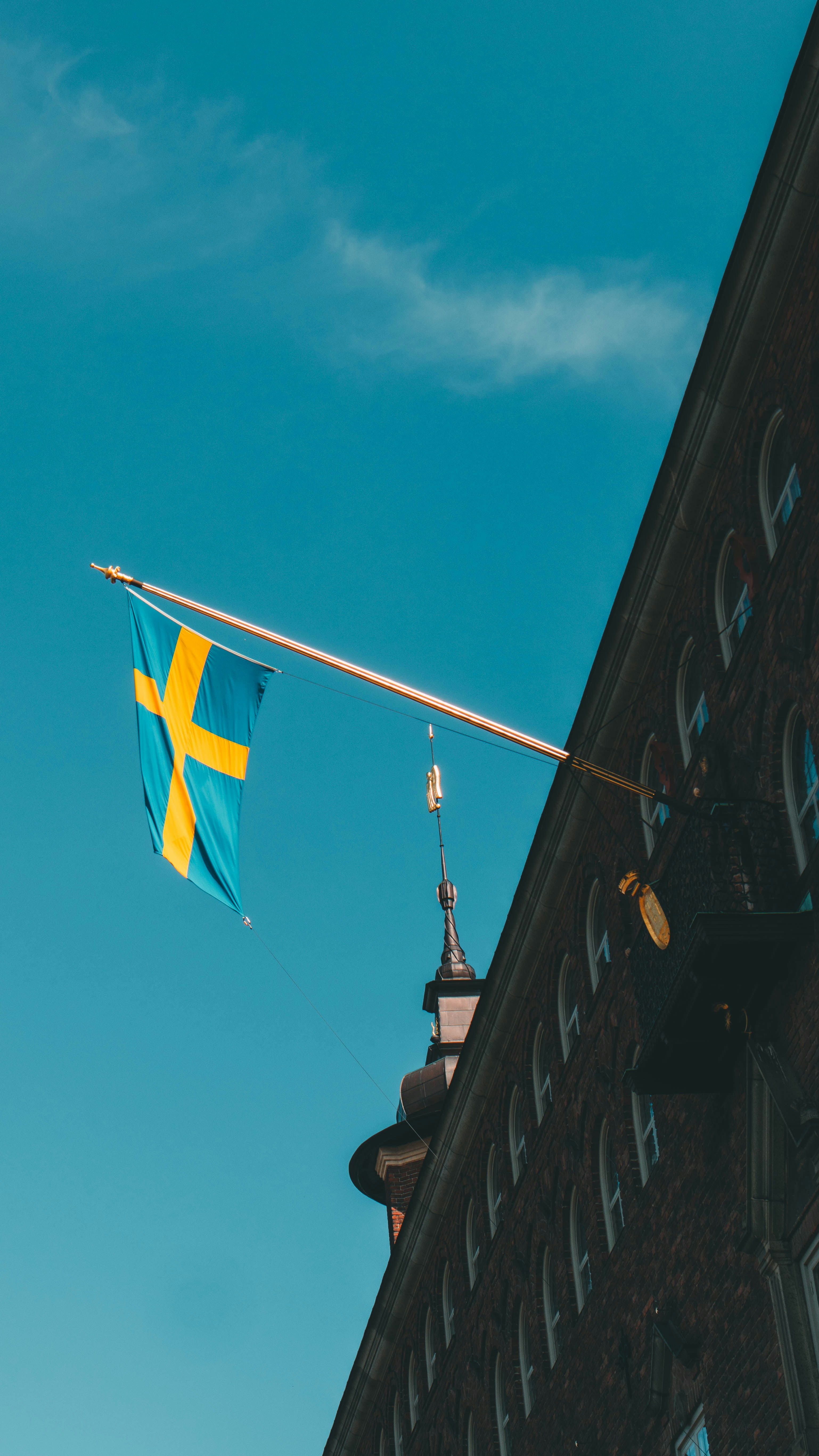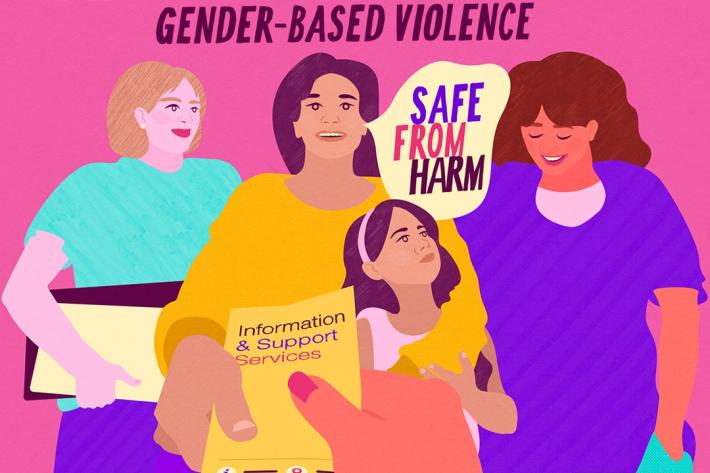Latest press releases
A selection of stories from across the Federation

Poland
Poland: Justyna Wydrzyńska’s Trial to Continue – A Shameful Blow to the Fight for Reproductive Rights
Today, instead of delivering justice, the court prolonged the legal persecution of Justyna Wydrzyńska by ordering a retrial.
For media inquiries


| 13 February 2025
Poland: Justyna Wydrzyńska’s Trial to Continue – A Shameful Blow to the Fight for Reproductive Rights
Today, instead of delivering justice, the court prolonged the legal persecution of Justyna Wydrzyńska by ordering a retrial. This is not justice—it is yet another attempt to exhaust and intimidate women human rights defenders (WHRDs) fighting for reproductive rights.

| 12 July 2024
Poland: Sejm fails to ease abortion law and protect women & their families
We are highly disappointed and angered by the vote today in the Sejm, who rejected a bill that would have decriminalised those helping women access abortion care. The bill failed to pass with a margin of only three votes. Members of Parliament voted against the safety, dignity and freedom of Polish women and against their families and loved ones, who can still be prosecuted for helping them access abortion care, together with reproductive rights defenders, and healthcare professionals. Decriminalising abortion assistance and provision would be the bare minimum. Yet Poland remains a country where women are dying because they are denied abortion care and where family and friends need to risk their freedom to help loved ones. Poland continues to be at odds with the rest of Europe. Currently, Poland has one of Europe’s most restrictive abortion laws, with access to care only permitted in situations of risk to the life or health of a pregnant woman, or if a pregnancy results from rape. In practice, however, it is almost impossible for those eligible for a legal abortion to obtain one. Those who help women access abortion care risk a prison sentence of up to three years. Last year, a women's rights advocate, Justyna Wydrzyńska, was convicted for sending self-administered abortion pills to a pregnant woman, a gynecologist was charged with unlawfully assisting patients in obtaining abortion pills, and a man was indicted for helping his partner obtain an abortion. The proposed bill would have completely decriminalised abortion assistance throughout a pregnancy and provision up to the 12th week of pregnancy and also removed penalties for abortion provision in cases of risks for the health or life of the pregnant woman or of a high probability of severe and irreversible fetal defects. Polish elected representatives once again failed to listen to the voice of Polish citizens who are in favour of liberalising abortion care laws. We need to end this terror campaign against those who help women and, ultimately, legalise abortion care and guarantee access for all women who need it. IPPF EN will continue to stand in solidarity with those fighting for reproductive freedom. The fight is not over.

| 10 June 2024
New European Parliament must uphold and advance sexual and reproductive health and rights and gender equality
As we wait for the political landscape of the new European Parliament to come fully into focus after the weekend’s European elections, IPPF EN is concerned about the impact of gains made by the far right, especially in some countries. An increase in the influence of the far right always threatens reproductive rights and gender equality. However, we are encouraged that the traditional grand coalition of centre-right, socialist and liberal parties will still maintain a majority. IPPF EN is determined to remind new and returning Members of the European Parliament (MEPs) of their institution’s proud, longstanding legacy as a champion of human rights, and their responsibility to uphold them. Over the coming weeks, the newly composed European Parliament will organise itself into working Committees and gear up for its important first job of vetting the incoming team of European Commissioners. These are early opportunities for MEPs to ensure strong positioning of human rights, gender equality, and sexual and reproductive health and rights, in institutional structures for the coming five years. As the new European Parliament begins work, IPPF EN is committed to urging and supporting it to continue to protect and advance the founding EU values of democracy, freedom, rule of law, human dignity, equality, and human rights. It must do this at home and abroad, using all political and funding instruments at the disposal of the EU institutions. We will call on MEPs to remain staunch guardians of precious civic space and to ensure the protection of all human rights defenders. IPPF EN stands ready to work together with the European Parliament to build and uphold an EU that strives to ensure all people, including those from marginalised communities, can live and achieve their full potential, free from discrimination, injustice and inequality. In these turbulent times, the challenges to EU values are considerable. But we are convinced that the EU can, and must, continue to safeguard and advance women’s rights, gender equality and social justice. The European Parliament remains a vital actor and partner in achieving this. Read more about how the European Union can deliver on reproductive freedom. Illustration: Fátima Bravo

| 07 May 2024
Joint civil society reaction to the adoption of the EU Directive on combating violence against women and domestic violence
Today, the Council of the EU officially adopted the EU Directive on combating violence against women and domestic violence. As 13 civil society organisations which advocate for human rights, gender equality, and the right for all to live free from violence, we welcome this first ever binding EU legislation on this issue as a groundbreaking step. The Directive adopts a holistic approach to combat violence against women and domestic violence, incorporating measures relating to prevention, protection, support for victims, access to justice and prosecution of perpetrators. This achievement is the result of long-term advocacy by feminist movements and Members of the European Parliament championing the European Commission’s ambitious proposal. We extend our gratitude to everyone involved in making this Directive as strong as possible. We applaud the fact that the Directive recognizes the perpetration of female genital mutilation, forced marriage and certain forms of online violence as crimes. Unfortunately, other forms of violence were ultimately not criminalised, including intersex genital mutilation and forced sterilisation. We deeply regret that some Member States managed to derail the unprecedented opportunity to criminalise rape with a consent-based definition at the EU level. Sexual violence against women is endemic across the EU, with widespread impunity. Consent-based definitions of rape allow for all cases of rape to be included and strengthen protection and access to justice for victims of rape. We continue to call on all Member States who have not yet done so, to move towards adopting consent-based laws. Crucially, the Directive will require Member States to do more to prevent rape, by raising public awareness of the fact that sex without consent is a crime, through awareness raising programmes and educational materials. We encourage Member States to embrace the comprehensive prevention approach outlined in the Directive, in particular primary prevention initiatives, and to provide mandatory comprehensive sexuality education, which includes consent education and challenges harmful gender norms. The Directive further guarantees comprehensive support to victims of violence against women and girls and domestic violence and access to both general and specialist support services, shelters, support for child victims, as well as access to comprehensive medical care including sexual and reproductive health services. This is the first time that EU law imposes explicit obligations on Member States to provide access to this essential medical care for victims of sexual violence. Member States will also have to provide training for professionals likely to come into contact with victims, on how to provide this support. The Directive recognises that victims of violence against women and domestic violence who experience intersectional discrimination are at a heightened risk of violence, and obliges Member States to meet their specific needs. Targeting a public figure, a human rights defender, or someone for their personal characteristics will constitute an aggravating circumstance. In the implementation of the Directive, Member States must ensure that all victims and survivors of gender-based violence are protected, no matter their sexual orientation, gender identity, gender expression or sex characteristics. However, EU lawmakers yet again silenced women impacted by EU migration policies. The only concrete step forward for migrant women is that the text requires Member States to make shelters available to all women experiencing domestic abuse, regardless of their residence status. Nonetheless we condemn that the final text does not retain provisions on protecting undocumented women's personal data from being transmitted to immigration authorities (neither in the context of accessing shelters, nor in terms of accessing justice). Member States must ensure that women are not deterred from going to the police because of their residence status, by including access to safe reporting in the ongoing revision of the Victims’ Rights Directive. We call on the European Commission to provide guidelines and training to Member States, based on international standards and in consultation with civil society organisations. We urge Member States to fully implement the Directive as soon as possible. Recalling that the Directive sets minimum standards, we call on Member States to go beyond these and to realise the highest standards across the EU. We call on the European Commission to review the Directive in the next five years and to work towards comprehensive and inclusive measures to address all forms of sexual and gender-based violence without discrimination. We, together with our members across Europe, are committed to providing our expertise, and look forward to supporting a strong implementation of the Directive, to progress towards a Europe where everyone is safe from gender-based violence. Signatories: Amnesty International Center for Reproductive Rights EL*C - Eurocentralasian Lesbian* Community End FGM European Network European Sex Workers Rights Alliance Human Rights Watch ILGA-Europe (The European region of the International Lesbian, Gay, Bisexual, Trans and Intersex Association) International Planned Parenthood Federation European Network (IPPF EN) La Strada International Organisation Intersex International Europe (OII Europe) Platform for International Cooperation on Undocumented Migrants (PICUM) TGEU (Trans Europe and Central Asia) Women Against Violence Europe (WAVE) Notes Throughout this statement, the term “women” should be understood as including “women and girls”, as in the definition of “violence against women” proposed by the European Commission in the Directive, which encompasses “violence directed against a woman or a girl”. Amnesty International, Center for Reproductive Rights, EuroCentralAsian Lesbian* Community (EL*C), End FGM European Network, European Sex Workers’ Rights Alliance (ESWA), Human Rights Watch, ILGA-Europe (The European region of the International Lesbian, Gay, Bisexual, Trans and Intersex Association), International Planned Parenthood Federation European Network (IPPF EN), La Strada International, Organisation Intersex International Europe (OII Europe), Platform for International Cooperation on Undocumented Migrants (PICUM), TGEU (Trans Europe and Central Asia), Women Against Violence Europe (WAVE). Our organisations work on a diverse range of women's rights issues. In the drafting of this document, we have been led by the expertise of women’s rights organisations and women human rights defenders from communities most impacted by the specific forms of violence described in each section. Our commitment to the text below represents our coming together as a collective with shared values, even though not every organisation has its own policy or programme of work dedicated to each issue. For more information, see a joint civil society statement on the revision of the Victims’ Rights Directive, signed by some of our organisations who are advocating for victims’ rights.

| 24 April 2024
Italy’s vote to involve anti-abortion actors in counselling violates women’s rights
IPPF strongly condemns yesterday’s vote in the Italian Senate in favour of involving anti-abortion associations in abortion counselling services, family planning centres (consultori) and hospitals. The recent adoption of a measure allowing anti-abortion activists to enter abortion consultation clinics in Italy is deeply troubling and represents a significant attack on women’s reproductive rights and bodily autonomy. This move undermines the fundamental right to access safe and legal abortion care. By allowing external interference in such intimate healthcare decisions, the Italian government is reinforcing stigma and harming women. The social and psychological implications of this measure create an atmosphere of intimidation and coercion for women seeking reproductive healthcare services. We must prioritise policies that safeguard fundamental rights and foster inclusivity, rather than catering to narrow agendas that undermine reproductive freedoms and social progress. Furthermore, the allocation of EU funds to support measures restricting access to sexual and reproductive health services, including safe and legal abortion, is deeply concerning and runs counter to the principles of equality and fundamental rights enshrined in EU treaties. We strongly condemn any use of EU funds to fund initiatives that infringe upon individuals’ rights to make autonomous decisions about their bodies and health. This decision runs counter to the objectives of the National Recovery and Resilience Plan. In a recent statement, Veerle Nuyts, European Commission Spokesperson on economic and financial affairs already underlined that the provision concerning abortion does not belong in the Recovery and Resilience Fund. It is alarming that the Italian government is planning to misuse European funds to pay for harmful measures against women. France has enshrined the right to abortion in its Constitution. The European Parliament voted to include it in the EU Charter of Fundamental Rights and explicitly asked to stop funding anti-gender and anti-choice organisations, and for Member States and local governments to increase their spending on programmes and subsidies to healthcare and family planning services. With yesterday's vote, Italy has done the opposite, underscoring an assault to the fundamental freedoms of millions of women, who have already been drastically affected by the funding cuts and subsequent closure of many family planning centres. We urge the Italian Government to reconsider its stance and prioritise policies that uphold the rights and dignity of all individuals, including comprehensive access to sexual and reproductive health services without discrimination or interference. We urge the EU to ensure the Italian Government cannot use EU funds to violate fundamental rights. Photo credit: Emma Fabbri, unsplash

| 17 April 2024
Sweden’s new legal gender recognition law is a vital step in the right direction
IPPF EN welcomes today’s vote by the Swedish Parliament of a new law on legal gender recognition. This replaces a law initially dating from 1972 which, whilst very progressive 50 years ago, was no longer fit for purpose. The bill adopted today, despite its limitations, contains important measures that will remove some of the obstacles that trans people currently face when they want to change a gender marker in their legal documents to reflect their gender identity. It is positive that the reform will simplify the administrative process and separate it from the process for accessing gender-affirming care. IPPF EN celebrates the adoption of the new law, and pays tribute to the commitment and determination of the trans movement and its allies in securing today’s result. Ulrika Westerlund, Member of Parliament in the Green Party and longstanding champion of trans rights in Sweden, said: “Despite the polarisation and the at times very aggressive and unbalanced debate, the parliament has demonstrated unity between six parties who stand behind this review of the Swedish Legal Gender Recognition law. Today’s vote will not give trans people self-determination of change of legal gender, but the process will be simplified, available to 16-year-olds and not require a diagnosis. We welcome this and look forward to continuing working for additional improvements further on.” “This is a significant step for trans people’s rights in Sweden. But the new legislation remains out of step with that of its Nordic neighbours and the recently-passed German gender recognition law, fully based on self-determination, which is the gold standard. The fight goes on,” said Micah Grzywnowicz, Regional Director of IPPF EN. Photo by Ozan Öztaskiran on Unsplash

















